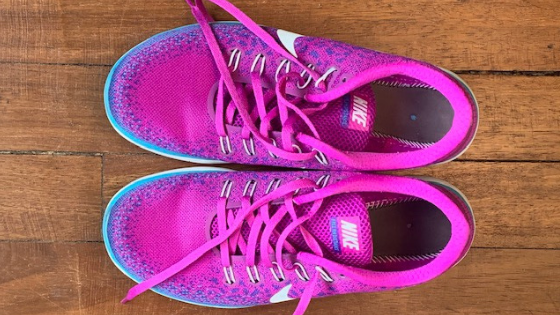During my courses on stress management and resilience, people often tell me that they like to go for a run at night to get rid of their stress.
Unfortunately, this is not always a good idea. At least not for everybody…
I’ll explain you why*.
It all depends on the state of your batteries…
‘My batteries?’
Yes, your batteries.
Imagine that when you ‘live’, you are ‘using’ energy from your batteries, so… at the end of the day they are empty (or at least emptier…). When you rest and sleep, you recharge your batteries so the next morning, they are full again and … you are good to go.
This makes sense, right?
This is not all: the state of your batteries, depends on how well your ‘sympathetic’ and ‘parasympathetic’ work together. ‘My what?’
Think of it as your ‘accelerator’ and your ‘brake’. (I already talked about it in a previous article: you can read it here.
When you ‘live’, your foot is on the accelerator (and you use the energy in your battery). ‘Relaxing’ equals the ‘brake’ (and the battery will recharge…). Your day is a constant ‘dance’: your foot moves smoothly from the accelerator to the brake and vice versa.
Until it doesn’t…
When you have been experiencing a long period of stress, it’s possible that your brake/accelerator system is not well adjusted anymore. What does this mean? Well, even when you are reading a book, or watching TV: your foot stays on the accelerator and … your battery can’t start to recharge… If this even goes on while you are asleep, it’s clear that you will not feel rested.
What does this have to do with running and/or sports?
Situation 1:
Imagine you had a busy day in the office. But it’s just the one off. You feel ‘mentally’ tired, but physically you are ok. And you are in good shape. Going for a run is not a problem at all.
Yes, running will put the foot on the accelerator and it will use energy from your battery but… if you rest a bit before going to bed, it shouldn’t be a problem (also depending on the intensity of the run, of course).
Situation 2:
The past months have been hectic in the office. You have been working hard, even during weekends. You don’t sleep so well, and you’ve found it hard to ‘switch off’ after work. The only thing that seems to work is going for a run at night.
This might not be the ideal solution for everybody… Possibly your foot has been on the accelerator for too long, possibly this has had an effect on your batteries and … possibly your system is not properly adjusted anymore. In this case, the adrenaline rush from the run could make the whole situation worse, even though it does take your mind off work for 30 minutes…
Do you see what I mean?
When the body is ‘rested’, the right training, can increase your resilience. Absolutely. And it will help you deal better with stressful situations/periods. I can totally recommend it: talk to a professional, do it properly and you’ll be more resilient.
When you are tired already, it’s not so good to put that kind of a strain on your body. It will not improve your resilience, on the contrary. You can definitely go for a walk: not too long, not too fast. If you listen to your body, you will know and … your body will be grateful and… reward you for it.
*Disclaimer: I am not a physical therapist, nor a personal trainer, far from it. My explanation is purely based on my expertise in stress management and resilience.
Do you want to know whether your ‘accelerator’ and ‘brake’ are in balance? Take the ‘Firstbeat Lifestyle Assessment’ and you’ll know! More info here!



